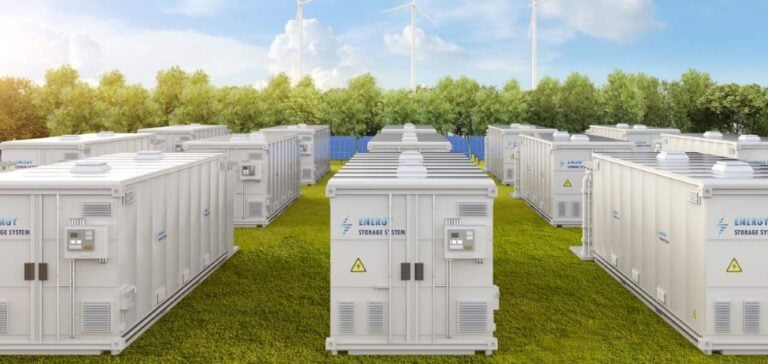The RESTORE program, launched by Bulgaria’s Ministry of Energy as part of the National Recovery and Resilience Plan (NRRP), attracted an avalanche of proposals for autonomous energy storage systems. By the deadline on December 5, 151 projects had been submitted, totaling nearly €2.55 billion, while only €581 million is available in state aid.
A Unique Call Within the European Union
Bulgaria stands out as the only European Union member state to have launched a call for projects exclusively dedicated to standalone batteries under the NRRP. This program is part of the recovery and resilience mechanism supervised by the European Commission. However, uncertainty looms over the funding, as a tranche of the European fund has been blocked due to Bulgaria’s chronic political crisis.
Ambitions and Challenges for the Energy Grid
The government aims to secure at least 3 GWh of guaranteed storage capacity for the electricity grid through this call. However, calculations show that, with optimized budget conditions, a capacity of 6 to 8 GWh could be achieved, covering up to one-third of daily peak electricity consumption. Grants can cover up to 50% of eligible costs, though projects offering lower participation are prioritized.
Previous Projects Still on Hold
In addition, the realization of the projects must meet a strict deadline: all storage systems must be operational by March 2026. This raises concerns about the availability of equipment and qualified labor.
A previous call for projects targeting storage systems coupled with renewable energy installations selected 249 projects for a total of €268 million. However, no contracts have yet been signed, reflecting administrative and operational challenges within the sector.
A Rapidly Evolving Sector
Despite these obstacles, several pioneering initiatives signal progress in Bulgaria’s energy storage sector. In June, Renalfa IPP commissioned a standalone energy storage unit of 55 MWh, coupled with a solar power plant in Razlog. In September, Solaris Holding inaugurated a similar installation of 61 MWh in Pernik, while a mattress factory in Plovdiv now relies on a 15 MWh system to meet its energy needs.
On the industrial side, ambitious projects like the battery plant and research center launched by the Belgian company ABEE and a battery production facility in Bulgaria by Solar MD are strengthening the country’s manufacturing ecosystem.





















